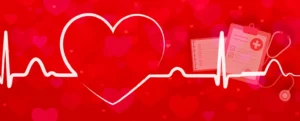When to go to Urgent Care for Vomiting
If you or your child have been vomiting for several hours, if it’s happening frequently or if there are other symptoms, such as abdominal pain and shortness of breath, it’s important to contact your healthcare provider. These symptoms could be signs of dehydration. Dehydration is particularly dangerous in children because they can become severely dehydrated much more quickly than adults. Plus, kids who are sick tend to drink less fluids than usual because they don’t feel well. For these reasons, kids who are vomiting should always be monitored closely until their condition improves.
It’s important to understand when you need to visit urgent care for a stomach bug. It is important not only because it’s a waste of time and money, but also because some symptoms can be significant (e.g., blood in stool). For example, if you have nausea and vomiting, are unable to keep fluids down and have severe abdominal pain, you should seek urgent care attention. However, most cases of nausea or vomiting will likely resolve at home with rest and over-the-counter medications such as Imodium or Pepto Bismol—most often these same therapies will be effective for diarrhea as well. These three problems alone account for 75 percent of all gastroenteritis cases requiring urgent care attention.
While many people consider urgent care centers only as an option when they have an emergency, you should also consider them when you’re feeling under-the-weather. If your problem doesn’t require immediate medical attention, such as a heart attack or stroke, urgent care centers are a convenient and cost-effective way to get healthy quickly. An asthma attack, for example, can be treated with inhaled medications that can relieve symptoms fast and reduce their severity in most cases. You won’t wait forever like you would at an emergency room either; urgent care centers typically have shorter wait times than hospitals do. This could mean that your headache will go away before it gets worse or that your stomach ache is diagnosed and treated before you become dehydrated.
While it’s important to know when to seek urgent care for a fever or asthma attack, it’s also essential that you understand when not to. In general, if your child has vomiting along with diarrhea, there’s a higher risk of dehydration. When dehydration is an issue, one of these is almost always a better option: call your pediatrician or head straight over to an urgent care facility. The sooner you can get treated and get hydrated, the less likely they are to need more serious medical intervention in order recover fully.




